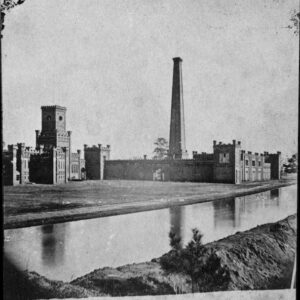Tag: Augusta GA
Wikipedia says: Augusta, officially Augusta–Richmond County, is a consolidated city-county on the central eastern border of the U.S. state of Georgia. The city lies across the Savannah River from South Carolina at the head of its navigable portion.
Augusta was established in 1736 and is named in honor of Princess Augusta of Saxe-Gotha (1719–1772), the bride of Frederick, Prince of Wales and the mother of the British monarch George III. During the American Civil War, Augusta housed the principal Confederate powder works.
The area along the river was long inhabited by varying cultures of indigenous peoples, who relied on the river for fish, water and transportation. The site of Augusta was used by Native Americans as a place to cross the Savannah River, because of its location on the fall line.
In 1735, two years after James Oglethorpe founded Savannah, he sent a detachment of troops to explore the upper Savannah River. He gave them an order to build a fort at the head of the navigable part of the river. The expedition was led by Noble Jones, who created a settlement as a first line of defense for coastal areas against potential Spanish or French invasion from the interior. Oglethorpe named the town in honor of Princess Augusta, the mother of King George III and the wife of Frederick, Prince of Wales. Oglethorpe visited Augusta in September 1739 on his return to Savannah from a perilous visit to Coweta Town, near present-day Phenix City, Alabama. There, he had met with a convention of 7,000 Native American warriors and concluded a peace treaty with them in their territories in northern and western Georgia. Augusta was the second state capital of Georgia from 1785 until 1795 (alternating for a period with Savannah, the first).
Augusta developed rapidly as a market town as the Black Belt in the Piedmont was developed for cotton cultivation. Invention of the cotton gin made processing of short-staple cotton profitable, and this type of cotton was well-suited to the upland areas. Cotton plantations were worked by slave labor, with hundreds of thousands of slaves shipped from the Upper South to the Deep South in the domestic slave trade. Many of the slaves were brought from the Lowcountry, where their Gullah culture had developed on the large Sea Island cotton and rice plantations.
During the Civil War, Augusta was home to many war industries including powder-works facilities. After the war, Augusta had a booming textile industry leading to the construction of many mills along the Augusta Canal to include Enterprise Mill, Sibley Mill, and King Mill.
Showing the single result
